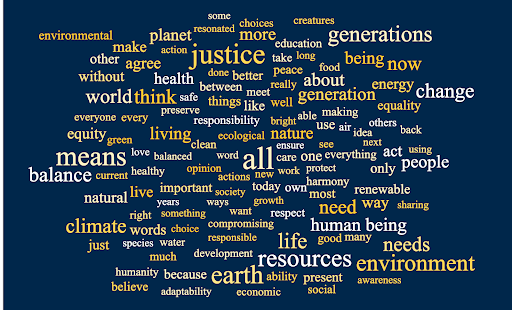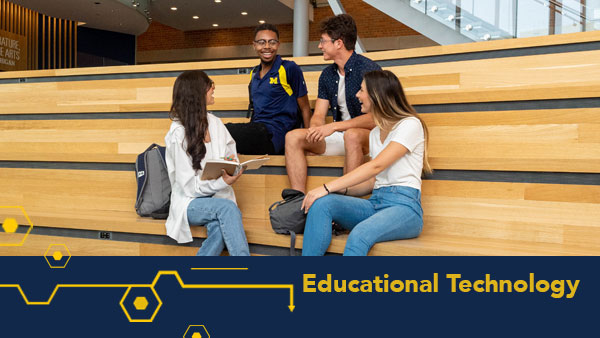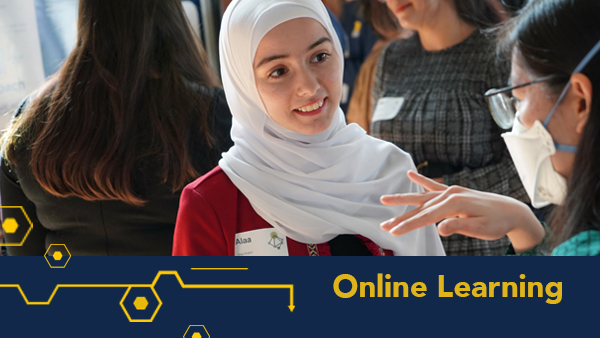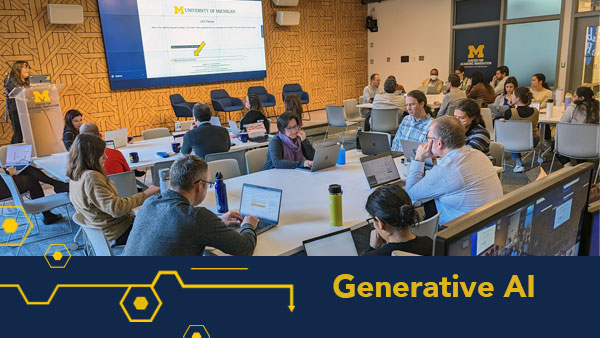Julia Maxwell, Graduate Fellow for Teach-Outs
@julia_maxwell
Crystal Cole, Course Operations Specialist
The 50th anniversary of Earth Day was a momentous occasion that was unfortunately overshadowed by a once-in-a-generation crisis: a viral pandemic sweeping the globe, confining families to their homes. People turned to new, virtual ways of working, playing, and connecting, including in celebration of Earth Day. With many in-person activities canceled, more than 5,000 global learners joined the Earth Day at 50 Teach-Out. They learned about the history of Earth Day and helped each other collectively imagine a brighter future.
In our Teach-Outs, we curate information from experts from various disciplines and ask the learner to engage with that information. They engage with each other as well as with the expert contributors (learn more about Teach-Outs at Teach-Out.org). We help learners synthesize the information by providing a focal point to keep in mind throughout the Teach-Out. At the beginning of Earth Day at 50, we invited our guest contributors to reflect on their hopes and values by asking them a focus question, “What does the future of sustainability mean to you?” We then created a single video of these reflections. In this video, we heard from more than 20 diverse experts including Jonathan Overpeck, dean in the School for Environment and Sustainability; environmental activist Barbara Alexander; Justin Joque, data visualization librarian at the University of Michigan; and Pamelia Ruiter-Feenstra, visiting carillonist and carillon instructor in the School of Music, Theater, and Dance.
We then asked the learners to respond to the same question, both at the beginning and at the end of the Teach-Out: “What does the future of sustainability mean to you?” We then created a word cloud to highlight their responses.

Learners focused on things such as justice, climate change, health, and responsibility. As they moved through the course, learners were greeted by experts from a wide array of fields, talking about how these themes shape their work. In a few instances, we utilized our Connecting Conversations framework and asked learners to connect what they learned from two different expert perspectives. We then took those thoughts to those same experts to provide insight and keep the conversation going.
By building in mechanisms to involve learners in the creation of course materials, we foster a greater sense of community and connection. This shared space enables deeper understanding and allows learners room to explore ideas together. It also motivates learners to complete the course, which helps them synthesize new knowledge. In a final step in Earth Day at 50, learners reflected on answers to the question: “What does the future of sustainability mean to you?” They reflected on if their answers still resonated and if they had evolved throughout their learning experience. They also detailed how they planned on applying their newfound knowledge toward a better future. Responses included:
“I chose justice and equality and they still resonate. While environmental problems affect everyone they affect the poor and disadvantaged harder. In the future I want to help educate about the environment and shine a light on the problems that affect us all.”
” … I will add equity to my definition of sustainability.”
“My first answer was ‘better life quality; respect for nature.”
“After watching the lectures and reading all the texts, I would make add to the above answer: I believe the future of sustainability will bring together people’s ecological preoccupations and sustainable actions and evolving technological solutions to solve issues such as energy saving, waste control and recycling, more efficient constructions, alternative transportation, better land use, nature and freshwater preservation … “
You can still view all of the lessons if you missed the live version of Earth Day at 50. You may also be interested in our Sustainable Food Teach-Out, or the MOOC Act on Climate: Steps to Individual, Community, and Political Action. In partnership with the University of Michigan School for Environment and Sustainability, we are also thrilled to offer a new MasterTrack Certificate program in Sustainability and Development.


